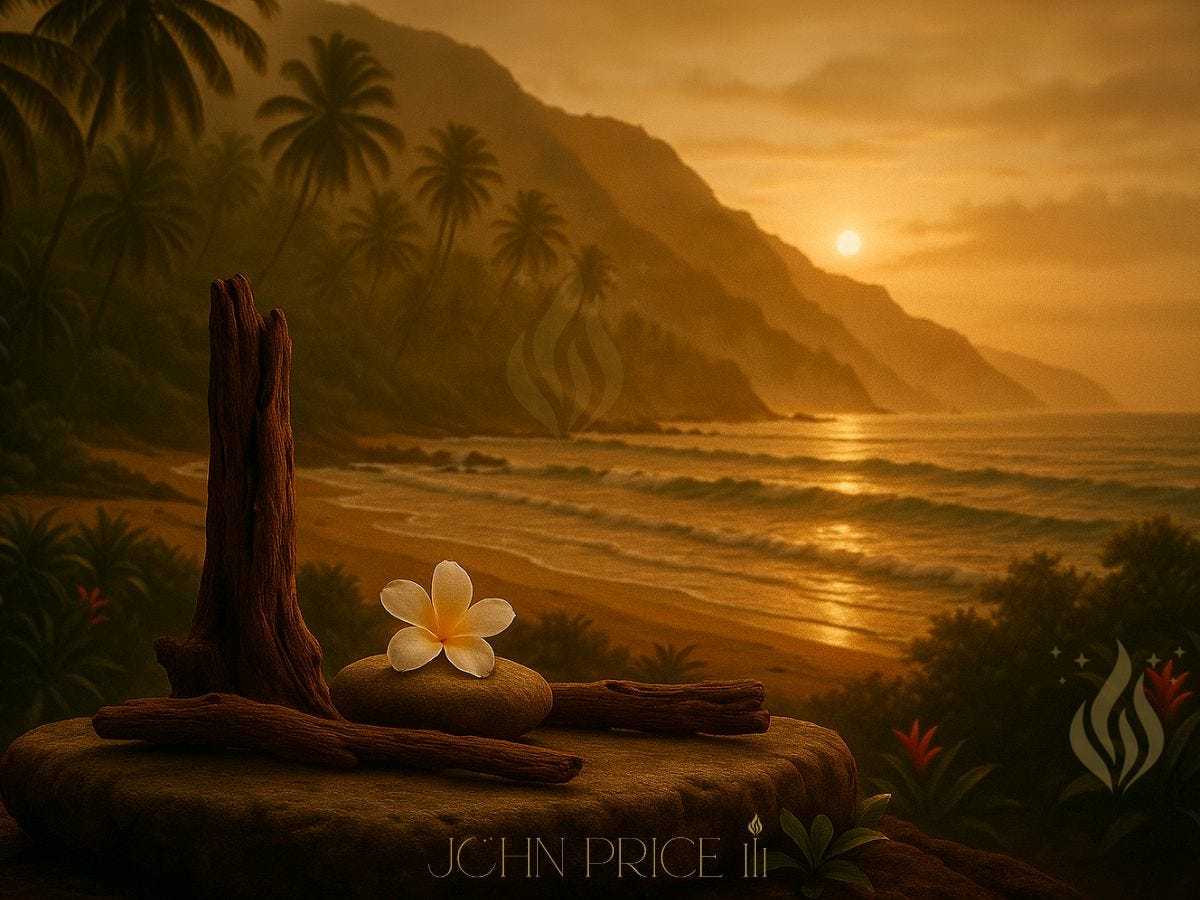The Ceremony of Simplicity
Lessons from Costa Rica: Realizing that simplicity isn’t emptiness, but the purest form of reverence.
My husband and I just returned from three weeks in Costa Rica. I honestly wasn’t sure what to expect; I’d never been there before. He had, though he’d never really explored. The people I’ve met from there have always been lovely, my corporate job has a team there, and of course, it’s a destination for wellness retreats and nature lovers.
The last part, to be honest, is the key reason we went. I wanted to experience for myself why so many people travel to Costa Rica to find their way back to themselves.
Now, I understand.
There’s a quiet that comes when you strip away the noise—when you’re deeply satisfied with what is naturally around you. Without chasing, without performing, without accumulating. When what is, is.
Maybe this is why the phrase Pura Vida is the heartbeat of Costa Rica.
Initially, I wanted to find the sacred ruins, the temples, the spiritual “hot spots,” the traditional ceremonies of ancestors—all the things I thought would attract people to a retreat I might host. I assumed that the main thing seekers wanted were those traditions and remnants of the past carried into the present and not just to be facilitated in a beautiful place.
And to be fair, I love those things too. The offerings, the ceremony, the reverence of it all. These experiences open our eyes to ancient wisdom that we, in the West, often miss outside of organized religion. My trips to Bali and Peru left beautiful, lifelong impressions on me.
Maybe because of that, for years I believed ceremony had to look a certain way, and take place in a spiritual hotspot—that there had to be a sacred playlist, the perfect altar, the incense smoke curling just right. I thought reverence required structure, that Spirit responded best to tradition.
But somewhere between the humidity of Costa Rica and the stillness that met me there, something shifted. I realized that ceremony isn’t about what we do or where we do it—it’s about how and why.
Maybe the most sacred rituals aren’t found in the curated moments we share, but in the simple ones we live.
The quiet breath before a sip of coffee.
The way sunlight filters through the trees in the morning.
The sound of tropical birds and animals waking with the sun.
The exhale that finally lets your shoulders drop when you realize it’s okay to be in the moment.
The sight of your spouse and little dog sunbathing while you sit in the shade and read.
This—this being present—is ceremony. It doesn’t require anything more. It nourishes the heart, the mind, and the soul.
During one of these quiet moments, it occurred to me that we live in a world addicted to more. More productivity, more proof, more performance—even in the name of healing.
We visit temples, host retreats, create rituals to try to get closer to peace, not realizing that peace was already there, beneath the noise we created trying to reach it.
Don’t get me wrong, I love temples, retreats, and rituals—and I always will—but they aren’t required to recognize that simplicity isn’t the absence of depth.
It’s the doorway to it.
When we strip away the excess—the roles, the noise, the striving—we’re left with something achingly pure: the essence of being. There is holiness in the ordinary when we stop trying to make it extraordinary.
Some of the most profound moments of my life didn’t happen on mountaintops or in ceremony.
They happened while walking down the street.
They happened in the shower.
They happened in conversations that didn’t need fixing.
They happened in the still breath between grief and gratitude.
Simplicity isn’t a downgrade.
It’s a homecoming—to what’s real, unadorned, and alive.
When we release the performance of healing and spirituality, we find ourselves living it.
The ocean doesn’t need our sage to be sacred.
The forest doesn’t need our affirmation to know its worth.
And the breath doesn’t need to be labeled “conscious” to bring us home.
This was the medicine Costa Rica offered me.
I came home deeply grateful—for my life, for my home, for all I have—and with the realization that the anxiety and stress I’d felt before the trip were of my own making. I was reminded that I don’t need much to be truly happy and at peace.
The ceremony of simplicity begins the moment we stop reaching and start remembering that we are already whole and complete.
You can make your tea and call it prayer.
You can sit in silence and call it communion.
You can watch the sun set and call it enough.
That’s the thing about simplicity: it doesn’t require effort, only attention.
And maybe attention is the highest form of devotion.
Reflection Prompt
Where in your life are you still mistaking complexity for meaning—and what might become possible if you let simplicity lead instead?
I’d love to hear what this brought up for you.
Your reflections are part of the medicine, and every voice adds to the remembering of our collective sovereignty.



